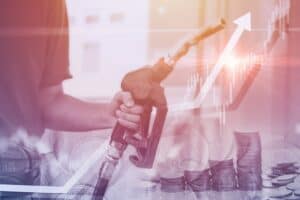Most consumers cut out luxuries from their spending some time ago, and will now have to start cutting on basic necessities just to stay alive.

Although the petrol price is only expected to rise by about 7 cents a litre in June, with diesel likely to increase by about 12 cents a litre, the overall economic outlook remains bleak, with unemployment predicted to increase and consumer debt expected to climb.
It’s time for consumers to tighten their belts and brace themselves for difficult times ahead.
All of the main economic indicators are showing that things are going to get a lot more difficult before there is any chance of light at the end of the tunnel.
With Eskom’s debt approaching R500 billion and the utility failing to sell enough electricity to cover its daily expenditures, it is going to fall on consumers to keep it from imploding and sinking the country’s entire economy.
With a variety of taxes now chewing up 53% of the fuel tax, consumers should brace themselves for the introduction of the carbon tax in June, which is going to add 9 cents a litre to the petrol price and 12 cents a litre to the cost of diesel.
In most cases, budgets are stretched to the limit, and it is difficult to see where the money is going to come from to deal with the latest round of price increases that are going to follow hot on the heels of the latest fuel price increases.
Most consumers cut out luxuries from their spending some time ago and will now have to start cutting on basic necessities just to stay alive.
Another hugely worrying factor is the growing unemployment rate, which reflects that almost half of all young people are out of work, with the official unemployment figure standing at 27.6%, showing an increase of 0.5%.
One curious factor was the announcement by the Long4life group of companies that showed that South Africans ware still splurging on sporting goods and manicures, with Sportsman’s Warehouse and salon chain Sorbet showing strong growth.
It was also painfully evident from the rapid growth of Debt Rescue that an increasing number of consumers are falling behind in debt repayments and resorting to the process of legal debt review.
Aside from making life much more difficult for motorists, the petrol increase is going to have a wider impact on consumers as the vast majority of goods in South Africa are transported by road.
We are seeing records set daily by the number of distressed consumers who are knocking on our door to be placed under debt review.
With gross consumer debt at around R1.73 trillion and the government’s gross loan debt at R2.2 trillion in the 2016/17 financial year, it is clear that South Africans are in for a very rough ride.
A major issue for the next few months is going to be whether ratings agencies are going to further downgrade South Africa’s sovereign debt. This could have a dramatic impact on the cost of state borrowing.
The only measure of relief for consumers who are in over their heads is the legally-binding system of debt review, which allows deeply indebted consumers to repay their debts over a longer period of time in smaller instalments often at a discount.
Lenders are sometimes willing to take a cut if it means they can avoid having to involve debt collectors or foreclosing on the fixed properties of debtors.
Another major issue is going to be load shedding and whether a post-election government is going to be able to keep the lights on. Given the mess that Eskom is in, this seems increasingly unlikely, and all of us are going to feel the pain.
Dawie Roodt, chief economist at the Efficient Group and Neil Roets CEO Debt Rescue.
Brought to you by Moneyweb
Support Local Journalism
Add The Citizen as a Preferred Source on Google and follow us on Google News to see more of our trusted reporting in Google News and Top Stories.






